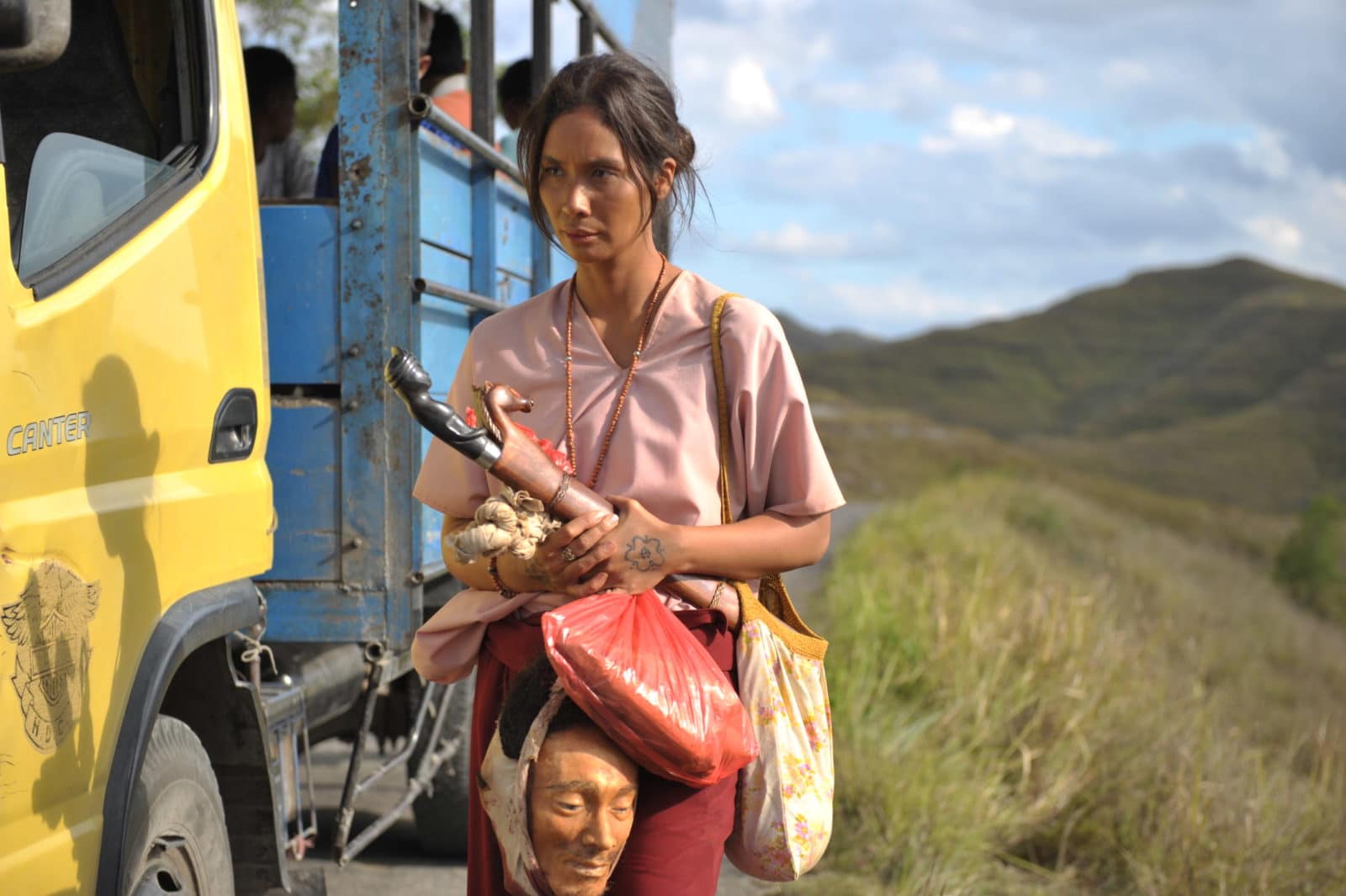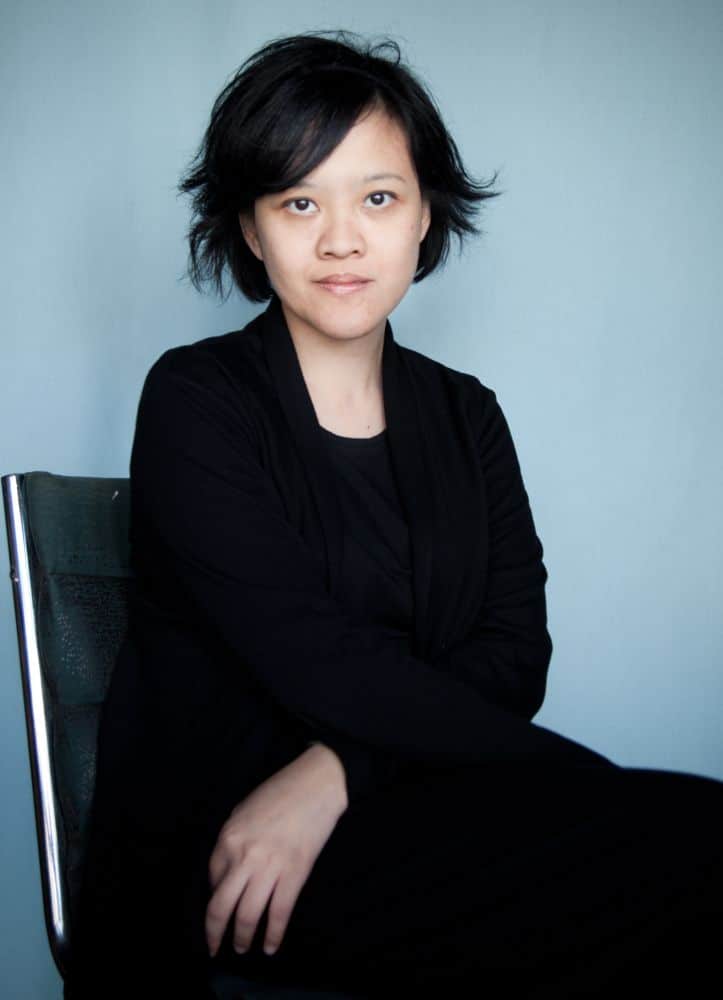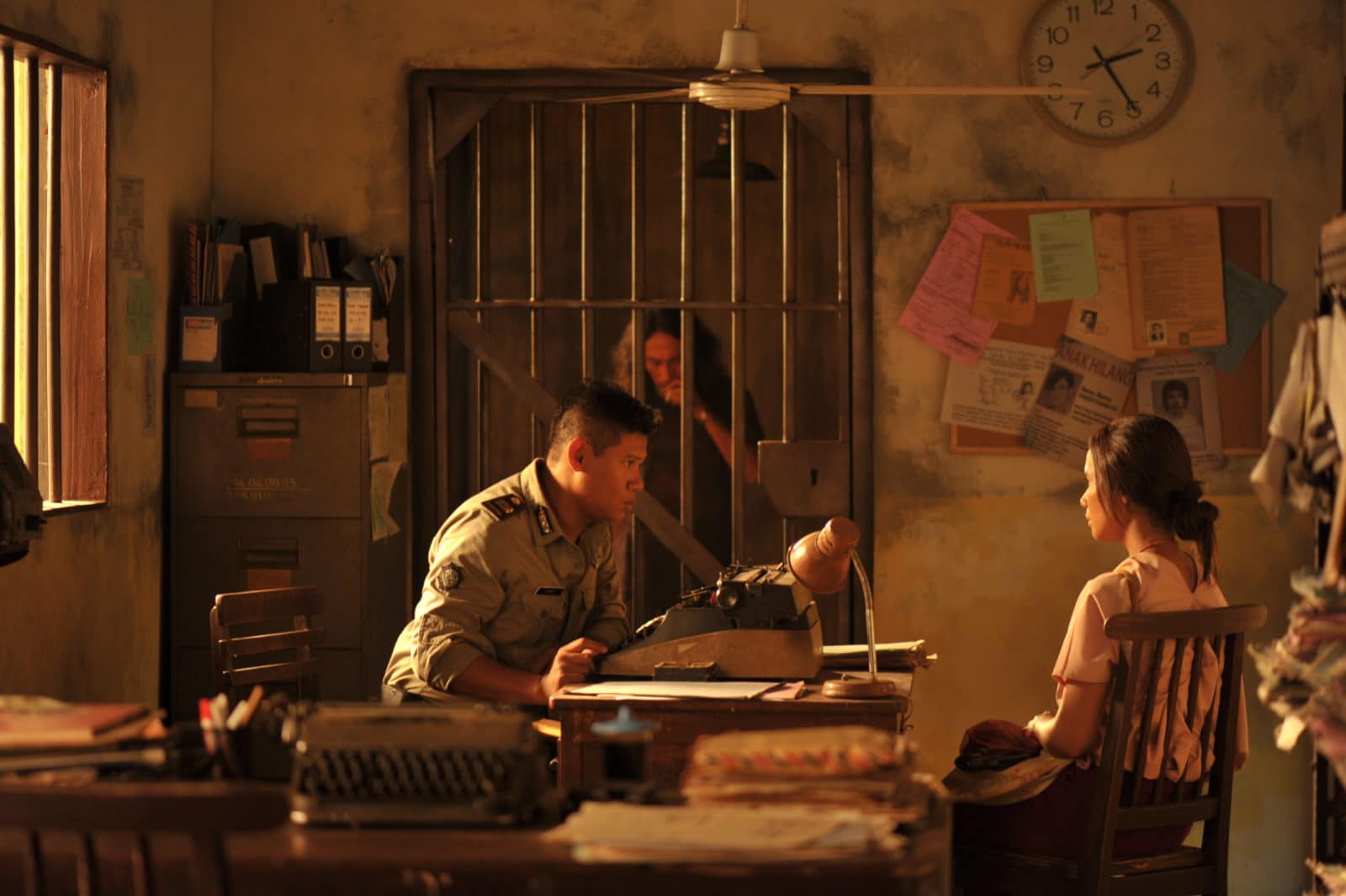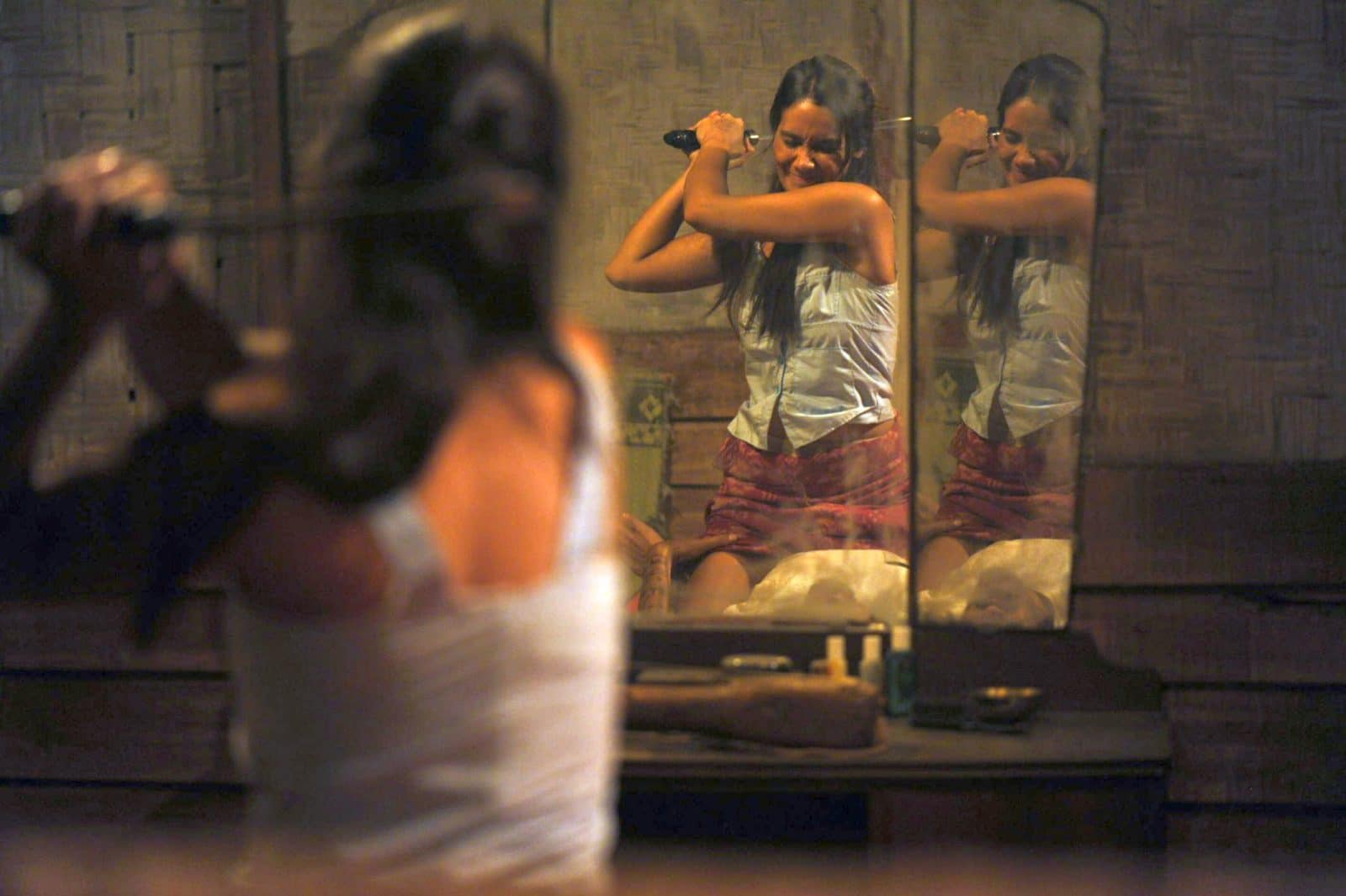Yes, she actually thinks it's a bizarre idea herself, making a western in Indonesia. But that is precisely what intrigued Jakarta-born and raised filmmaker Mouly Surya. Her first two films were about women in the big city, a life she knows well. Marlina's story is completely different. Marlina is a widow on the poverty-stricken and patriarchal island of Sumba who is visited by a gang of robbers.
Who Marlina the Murderer now sees immediately understands that those western elements fit perfectly. To begin with, all the gorgeous arid landscape, the brooding tension and the sparse but sometimes abrupt violence. And above all, the stoic, somewhat inscrutable heroine seeking justice after what has happened to her. Because she did not let that brutal robbery and rape just go over her head, as the title suggests.
Mouly Surya is considered a promising new Indonesian talent and has already won several awards. Marlina the Murderer premiered at Cannes last year. On 15 February, this feminist western comes to Dutch cinemas. Now it is already shining at the Rotterdam Film Festival. That is also where I will meet Surya.
Putting your own stamp

Is this really the first Indonesian western, as I read somewhere?
"If I say yes, I'm bound to get smacked upside the head by a few critics," laughs Surya. "But those few westerns ever made in Indonesia were parodies."
The basic idea for the story was given to Surya by prominent filmmaker Garin Nugroho, pacesetter of Indonesian independent film. He felt a woman should film it.

"That did confuse me at first. Before this, I had never filmed anything by anyone else, and Nugroho is such a great artist. I had to find a way to draw it to me. I could still go in any direction with the premise, from an average drama to an action film with lots of violence. It could even have been set in the big city."
"Making it a western was my way of putting my stamp on it. The fact that the heroine is a woman also appealed to me, as did the community on the island."
Rebirth
I understand that much of what Marlina experiences on her trip around the island is taken from the daily reality of Sumba.
"I went to Sumba myself to do my own research. The first thing I saw when I landed there was a big picture of a machete. Those machetes are banned at the airport."
"It's a very different world, with particular customs and Catholic influences, but the religion is mainly animist. The deceased husband standing in the corner of the room like a mummy in the film, that's really how it goes there. It was a challenge to make all that my own. But what helped most in the end was that it is also about grief. Shortly before, my father had died. That made me connect with the story. I actually never saw it as a revenge film. More like processing grief. In the end, it's also about rebirth."

It is indeed an intriguing mix of elements, this western with no guns but machetes and mobile phones. There is clear social criticism, as in the scene with the utterly indifferent and even demeaning police. This then juxtaposes with a touching interlude with an open-minded young girl who was deliberately given the boy's name Topan by her mother. The same name as that of Marlina's own deceased son. Plus the friendship that grows between Marlina and Novi. This heavily pregnant young woman is abused by her husband. Superstitious as he is, he sees the delayed birth as proof of adultery.
New for Indonesia
And, of course, a female heroine in a very macho genre. How did Indonesian audiences react to that?
"I got the impression that it was all very new to them. At a press conference, I even had to explain what a spaghetti western is, for example."
"It's a more Western approach to cinema. Most Indonesian films, especially the popular ones, are very moralistic. It's all about morality, which is something ingrained in our way of thinking. We get that from our upbringing."

"Films with strong female characters we do have in Indonesia, but someone like Marlina is still unusual. Her independence, the violence she uses, her somewhat mysterious attitude don't make it easy for the audience to fathom her. Only with the girl Topan does she show her vulnerable side. That is also one of my favourite scenes."
Men and women
In the beginning, we see the gang members throwing a party at Marlina's house. They tell her in advance that they are going to rape her. According to them, as a single widow, they are even doing her a favour by doing so. Later, there is a scene in which some women travelling with Marlina laconically chat about men and sex. Towards the end, we see the pregnant Novi becoming more independent. As if the film is calling on women to stand up for themselves.
Does all this say something about the relationship between men and women in Indonesia?
"Yes, the film refers to that in many ways. In Indonesia, women are usually banished to the kitchen. That's her place, her prison. That scene with the muggers is based on something I heard on Sumba. There, it could happen that there was a knock on your door announcing, 'We will come and get your things tomorrow.' Then there was nothing you could do about it."
"That women talk about sex so openly may not be common on the island, but I myself had an elderly aunt who was very free to do so. It turns out to be recognisable. My French co-producer said, 'I have exactly such an aunt.'"
"And yes, male sexual misconduct is still one of the most covered-up crimes, especially in a country like Indonesia."
Is Indonesia becoming more conservative, and does that make it harder to talk about these kinds of issues?
"Most of Indonesia's 250 million people are Muslim, and a quarter of them have become very conservative. But there are also very many who think differently. Indonesia is a very diverse country. I still walk around in Jakarta just as I do here in Rotterdam, even dressed more airily. It doesn't limit me, it hasn't changed my life."
Censorship
"However, I did have to accept that the censors made a few short cuts for the screening in Indonesia. The rape, among others, and the close-up of the severed head. Intriguing really, that not the chopping off itself, but the image of the head was deemed too violent. The suggestion of violence is more violent than the violence itself."
That sex scene was filmed little revealing anyway.
"No, but still, after a performance, someone came up to me and asked, 'Why did that have to be so explicit?' Yeah, what was I supposed to say to that?"
But that image of a woman like Marlina, dragging a man's severed head with her, that turns relationships upside down. That must be confrontational. Was that intentional?
"Yeah sure, that's the idea." And adds somewhat wantonly, "It's a politically incorrect film."
